Advanced Crime Scene Analysis Crime Scene Photography &

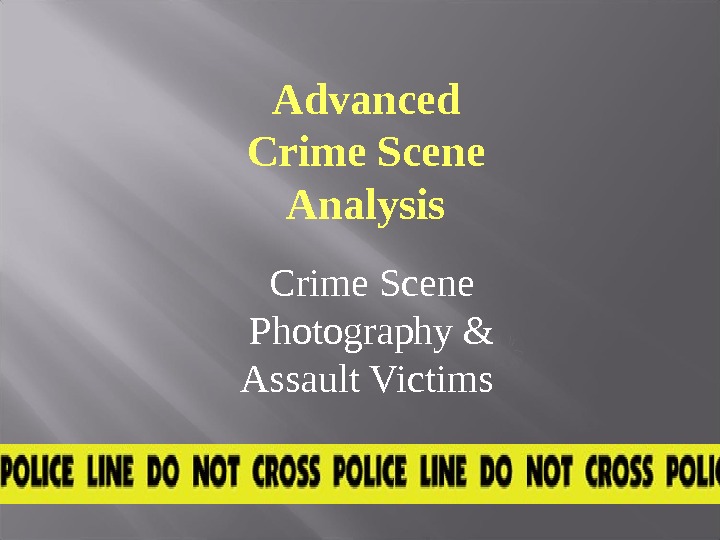
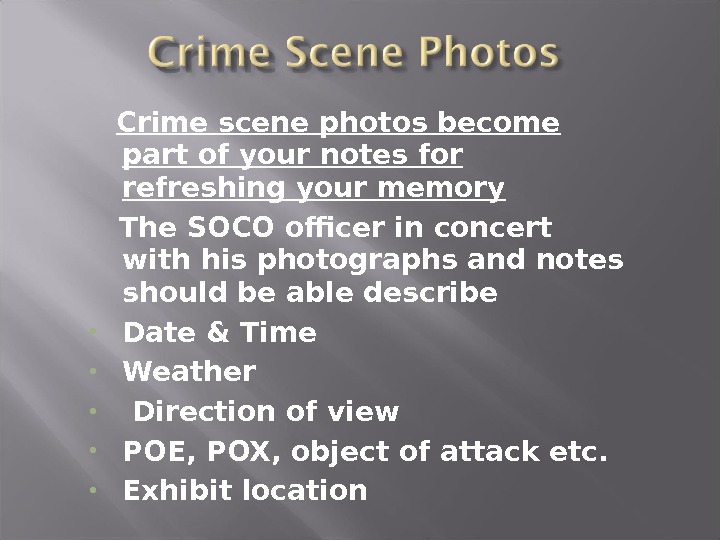
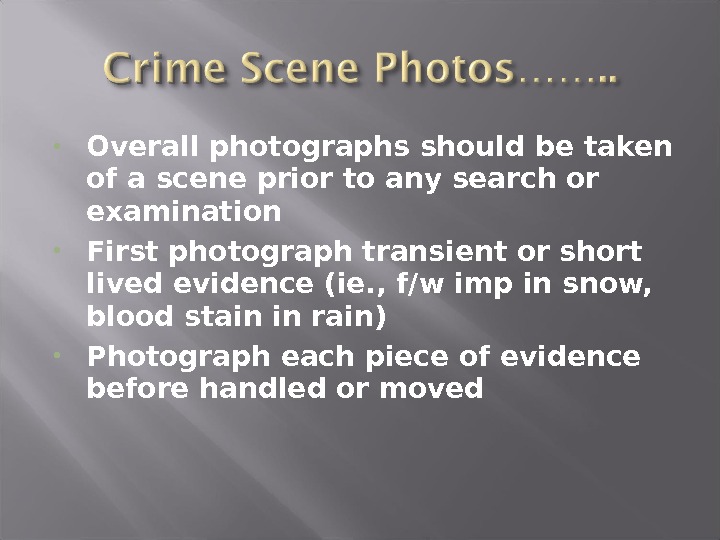
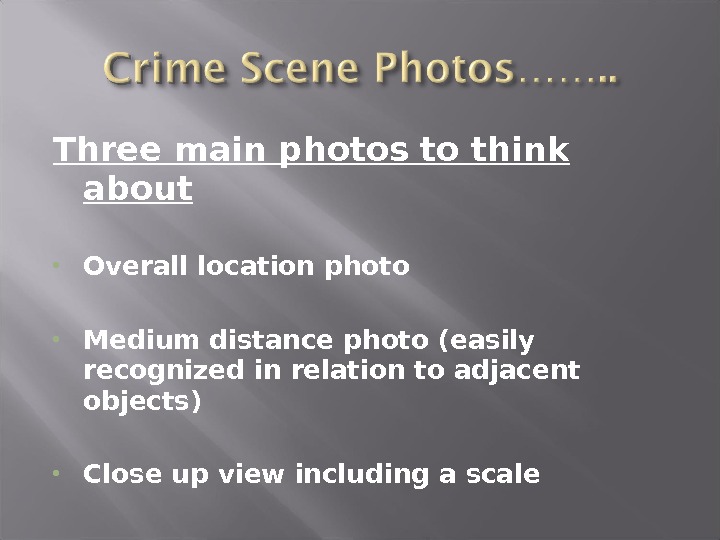
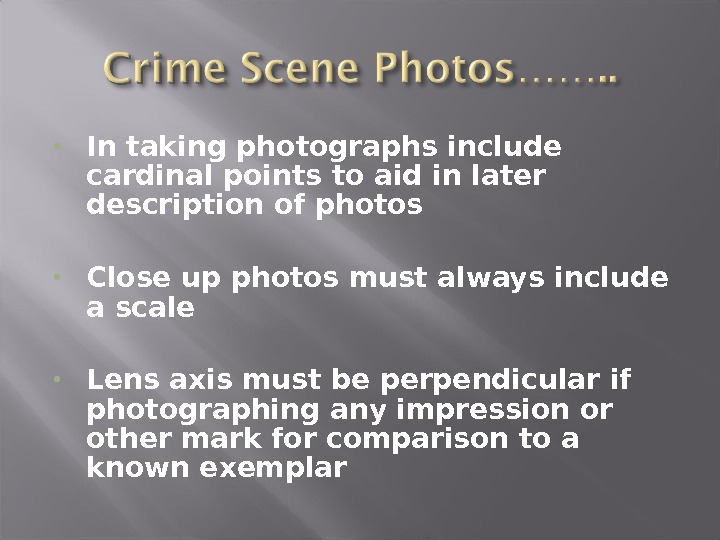

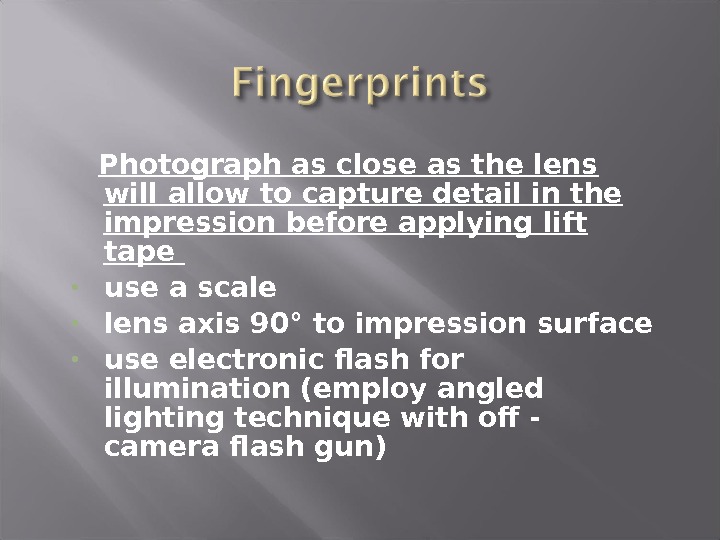
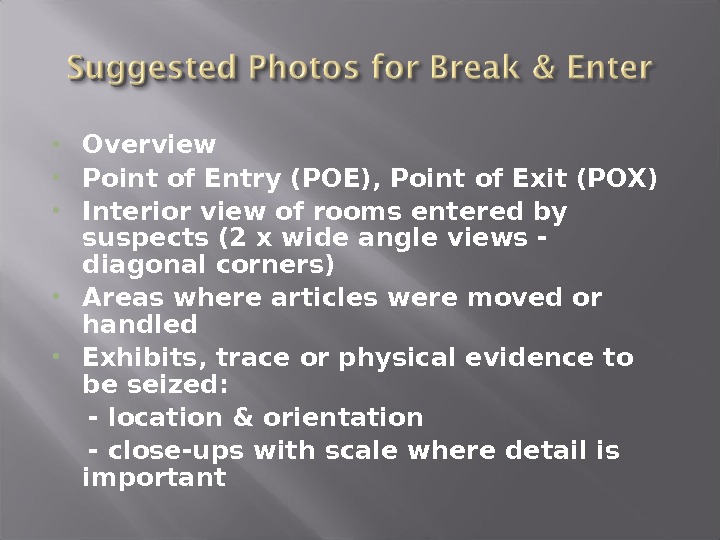
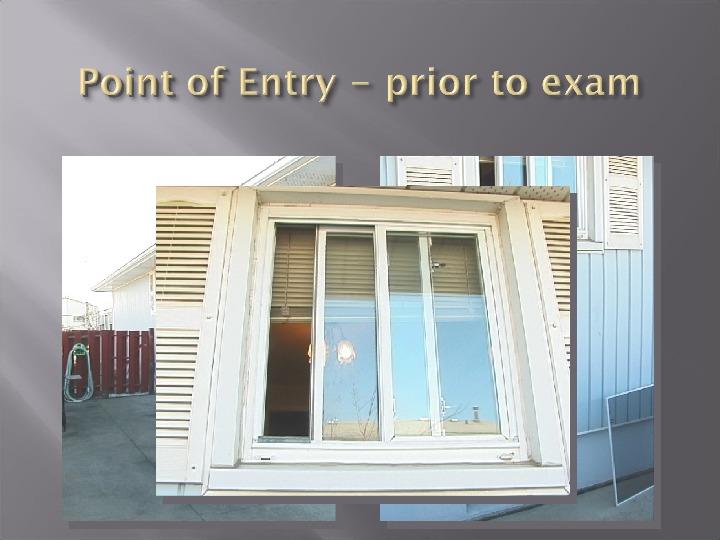
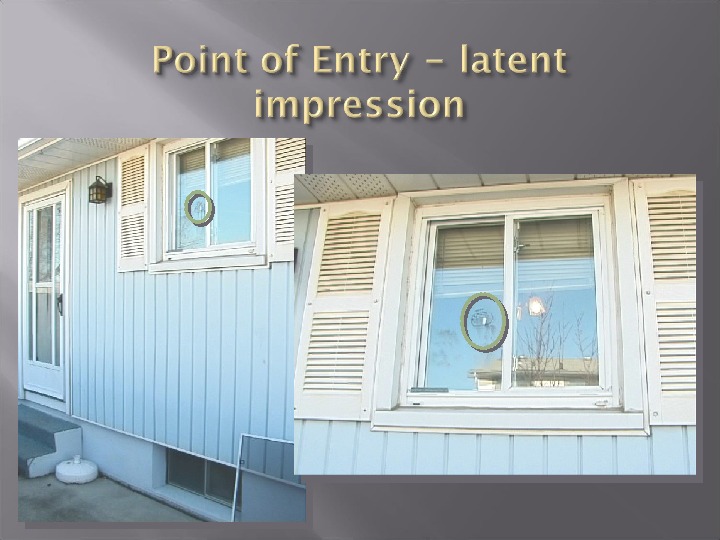
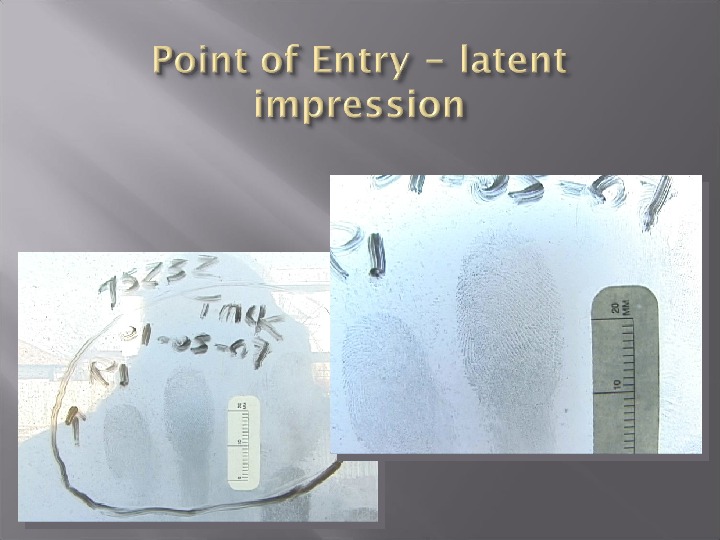
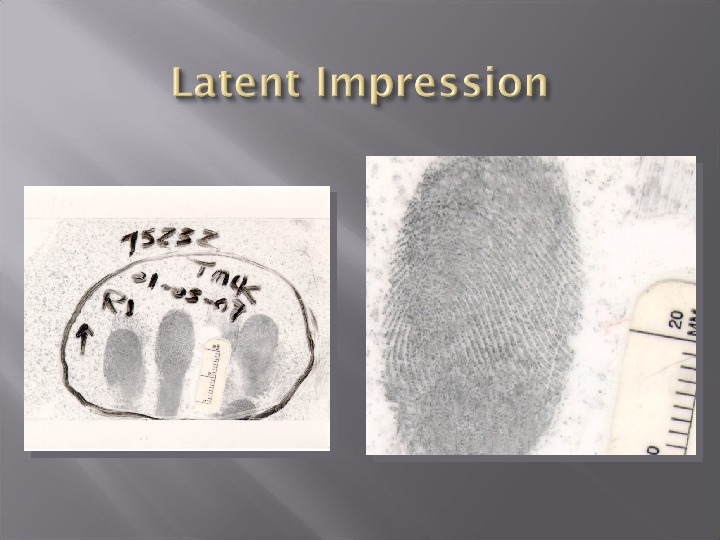
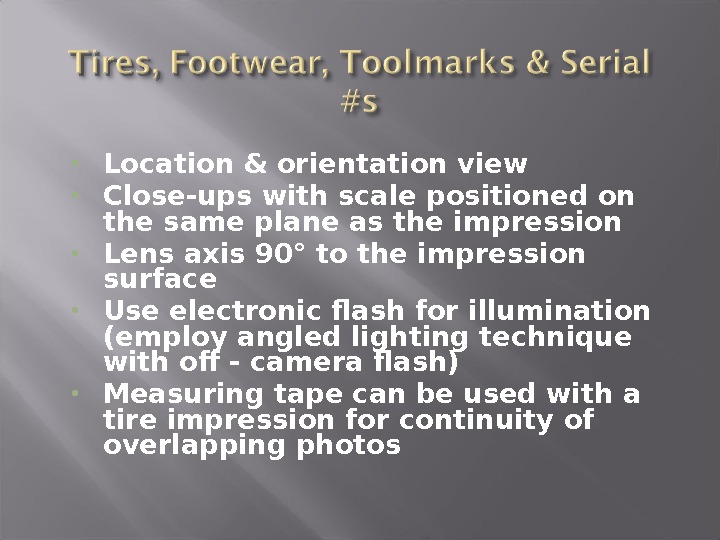

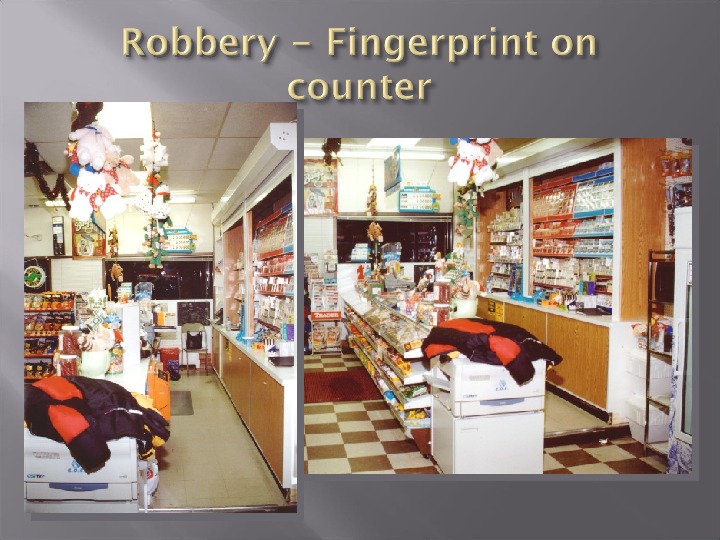
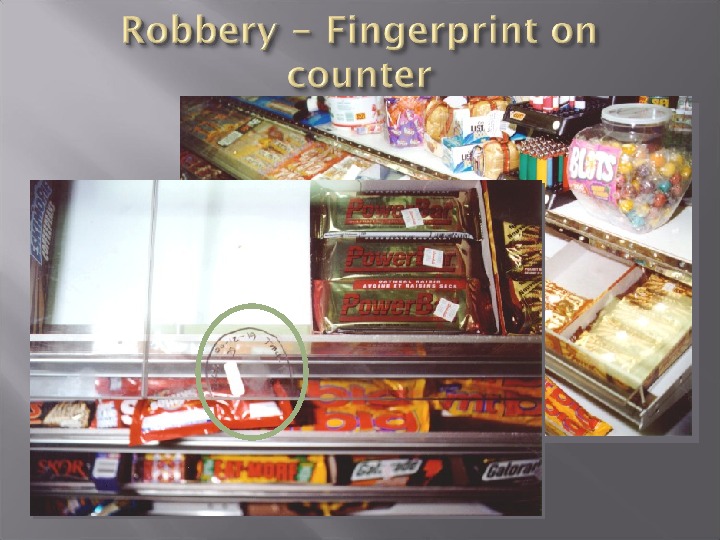
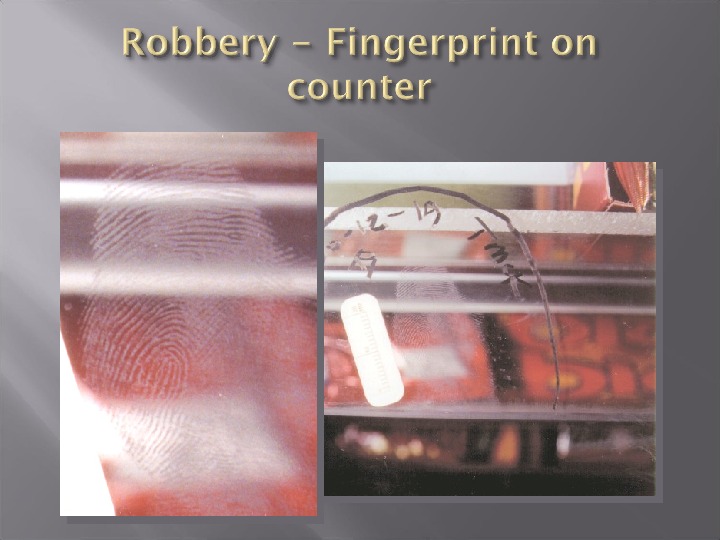
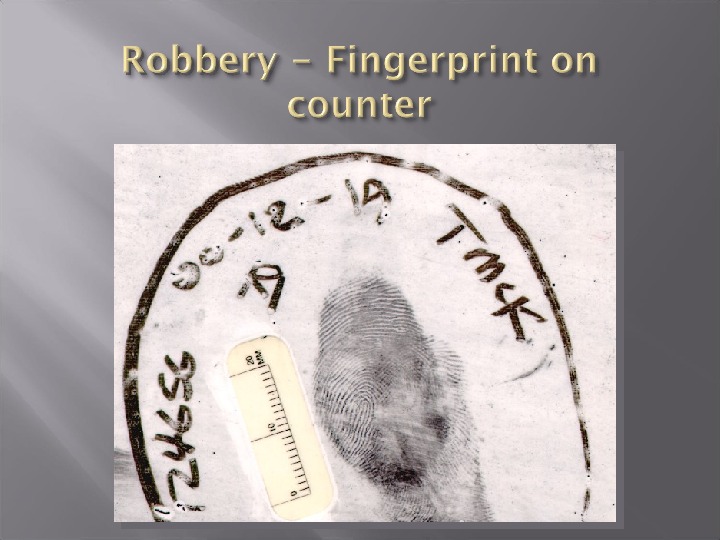
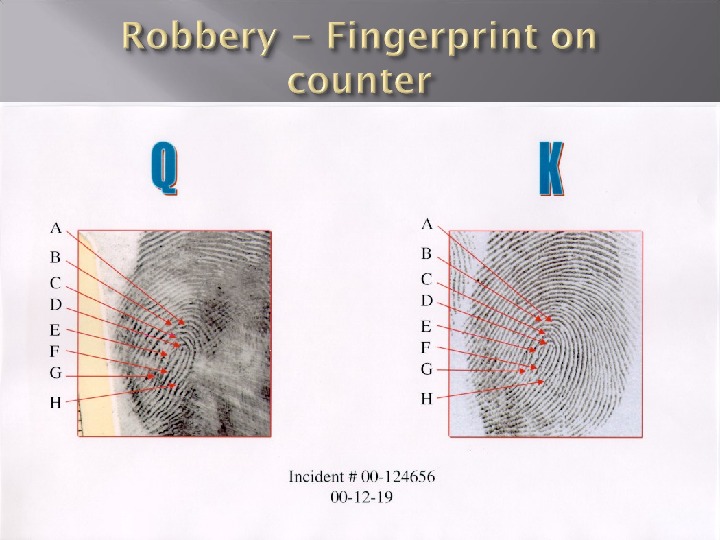
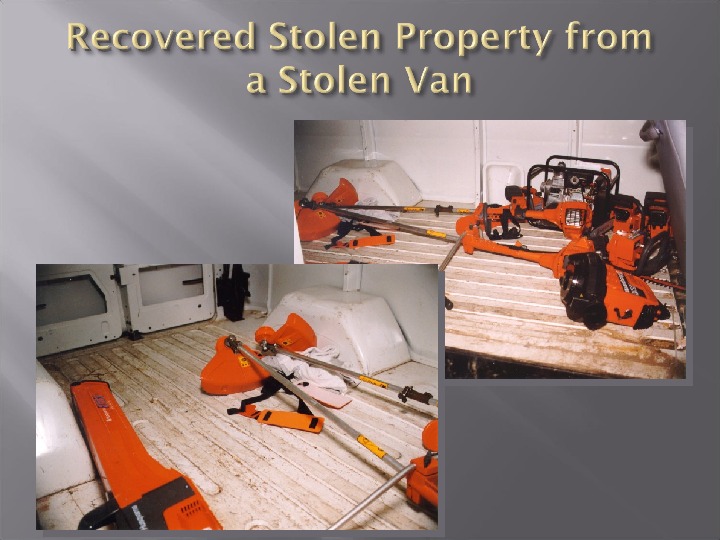
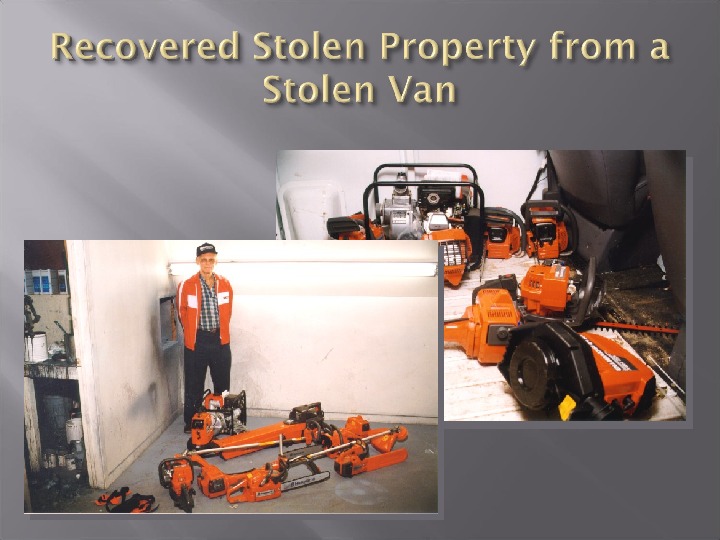
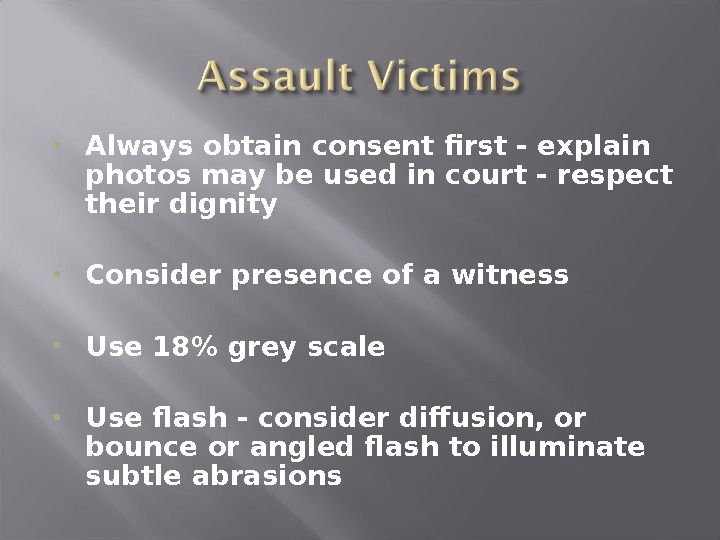
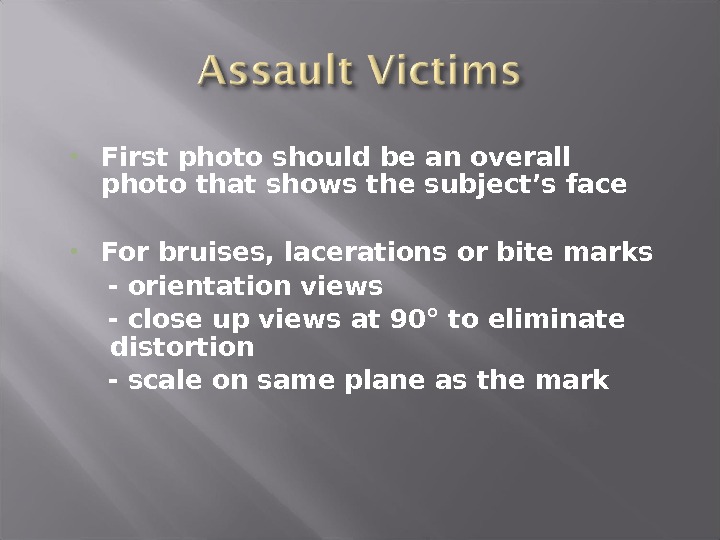
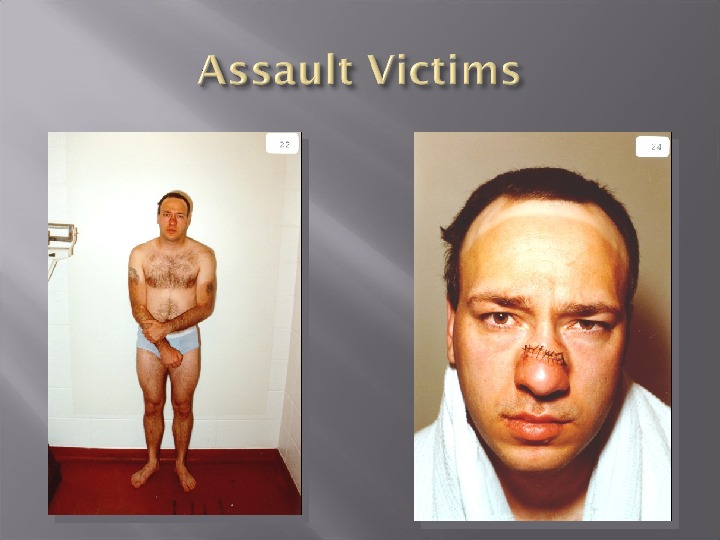
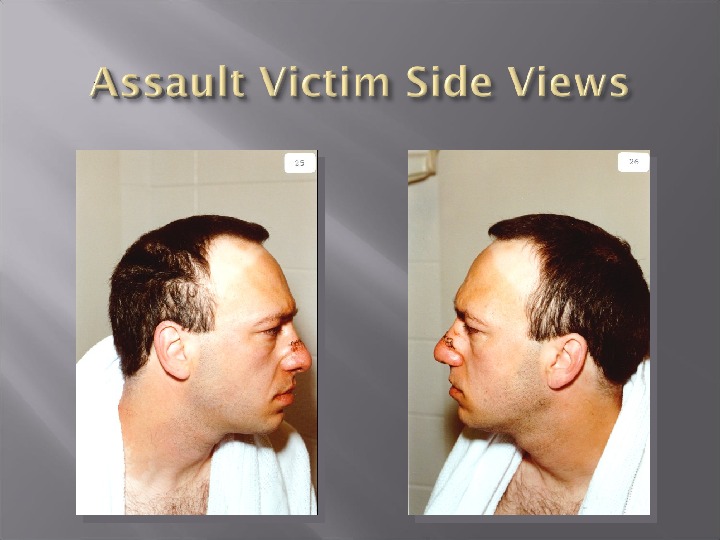
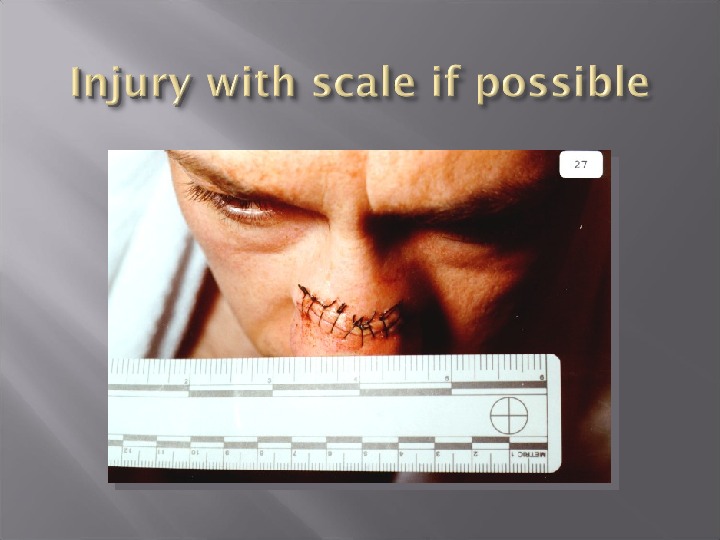
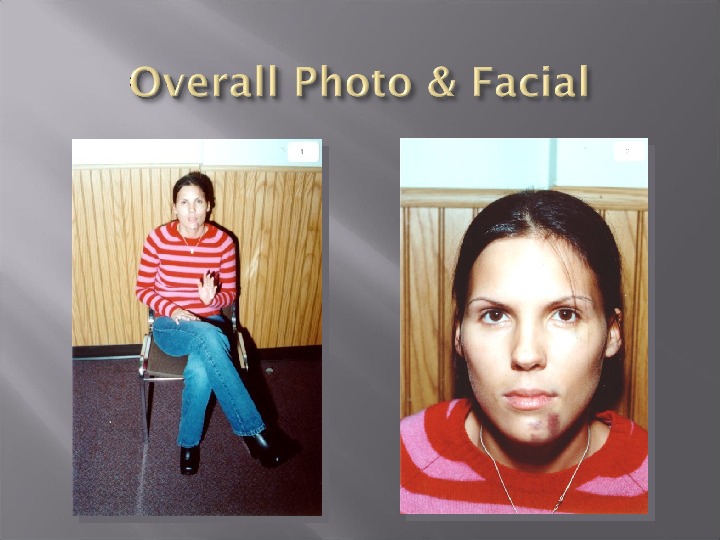
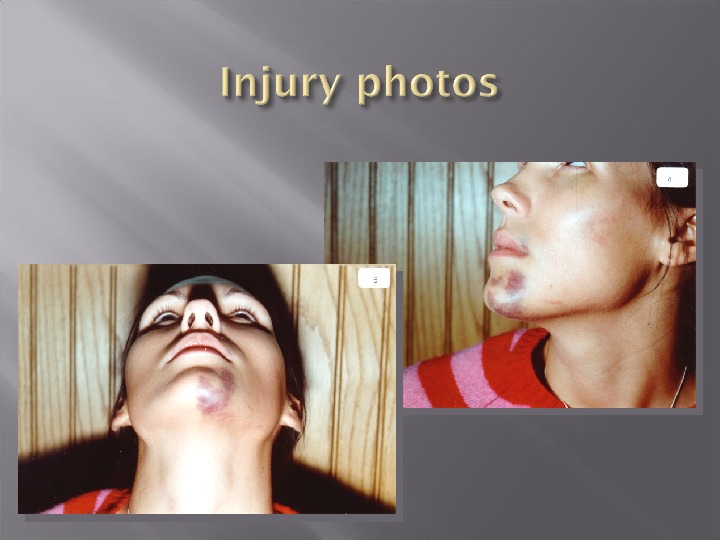
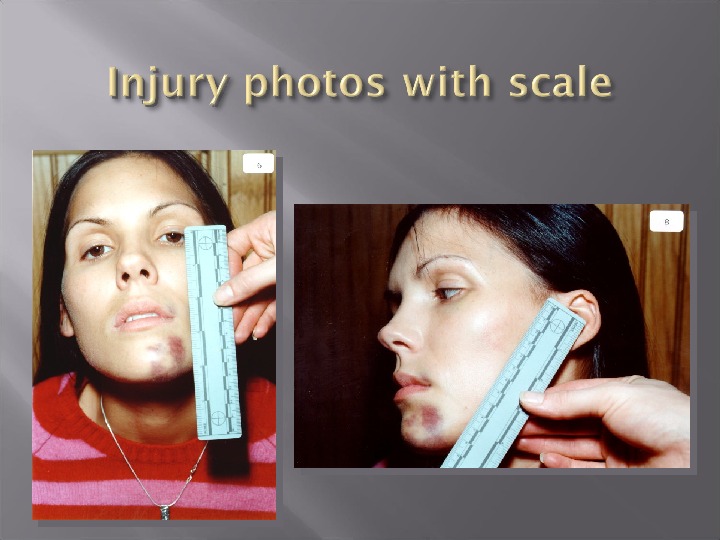
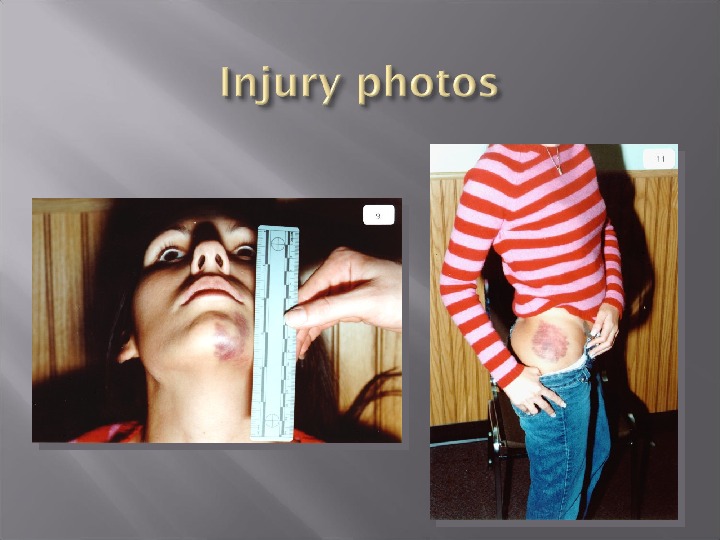
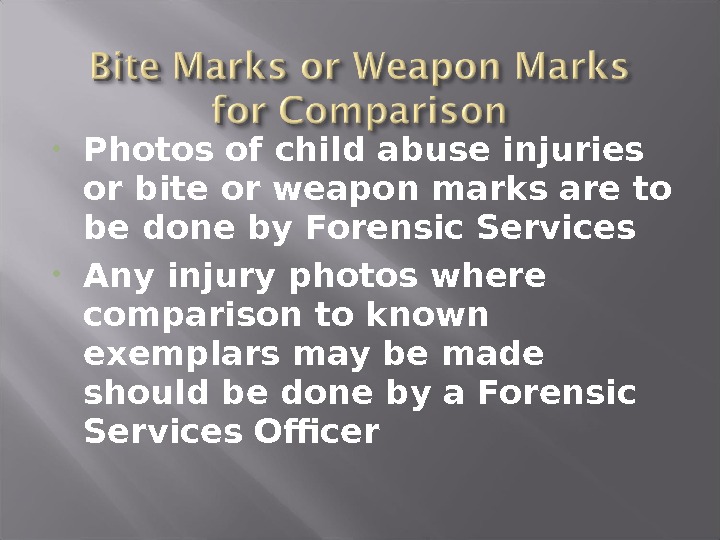
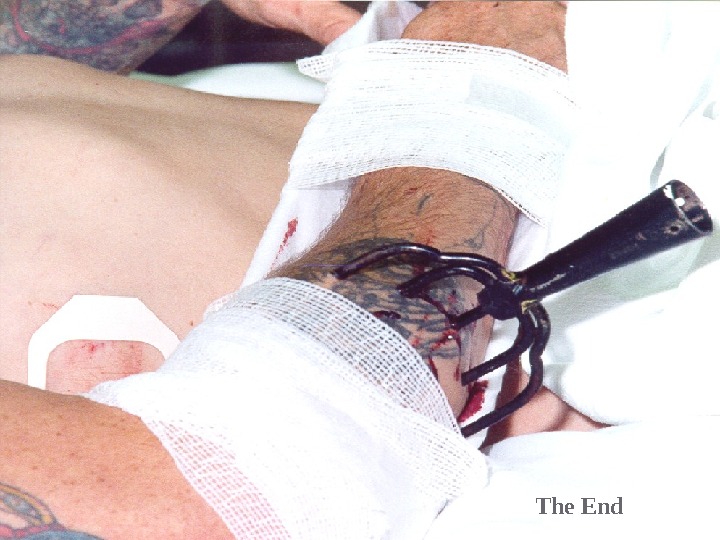
nc_acsa_-_crime_scene_amp_assault_photos.ppt
- Размер: 21.6 Mегабайта
- Количество слайдов: 32
Описание презентации Advanced Crime Scene Analysis Crime Scene Photography & по слайдам
 Advanced Crime Scene Analysis Crime Scene Photography & Assault Victims
Advanced Crime Scene Analysis Crime Scene Photography & Assault Victims
 Crime scene photos become part of your notes for refreshing your memory The SOCO officer in concert with his photographs and notes should be able describe Date & Time Weather Direction of view POE, POX, object of attack etc. Exhibit location
Crime scene photos become part of your notes for refreshing your memory The SOCO officer in concert with his photographs and notes should be able describe Date & Time Weather Direction of view POE, POX, object of attack etc. Exhibit location
 Overall photographs should be taken of a scene prior to any search or examination First photograph transient or short lived evidence (ie. , f/w imp in snow, blood stain in rain) Photograph each piece of evidence before handled or moved
Overall photographs should be taken of a scene prior to any search or examination First photograph transient or short lived evidence (ie. , f/w imp in snow, blood stain in rain) Photograph each piece of evidence before handled or moved
 Three main photos to think about Overall location photo Medium distance photo (easily recognized in relation to adjacent objects) Close up view including a scale
Three main photos to think about Overall location photo Medium distance photo (easily recognized in relation to adjacent objects) Close up view including a scale
 In taking photographs include cardinal points to aid in later description of photos Close up photos must always include a scale Lens axis must be perpendicular if photographing any impression or other mark for comparison to a known exemplar
In taking photographs include cardinal points to aid in later description of photos Close up photos must always include a scale Lens axis must be perpendicular if photographing any impression or other mark for comparison to a known exemplar
 Camera lens axis is perpendicular (90 ° ) to the surface A white bounce card can be used to lighten shadows in a three dimensional impression. Camera Flash Three Dimensional Impression or any copy work of two dimensional items or highly reflective surfaces. Flash is at an approximately 45 ° angle
Camera lens axis is perpendicular (90 ° ) to the surface A white bounce card can be used to lighten shadows in a three dimensional impression. Camera Flash Three Dimensional Impression or any copy work of two dimensional items or highly reflective surfaces. Flash is at an approximately 45 ° angle
 Photograph as close as the lens will allow to capture detail in the impression before applying lift tape use a scale lens axis 90° to impression surface use electronic flash for illumination (employ angled lighting technique with off — camera flash gun)
Photograph as close as the lens will allow to capture detail in the impression before applying lift tape use a scale lens axis 90° to impression surface use electronic flash for illumination (employ angled lighting technique with off — camera flash gun)
 Overview Point of Entry (POE), Point of Exit (POX) Interior view of rooms entered by suspects (2 x wide angle views — diagonal corners) Areas where articles were moved or handled Exhibits, trace or physical evidence to be seized: — location & orientation — close-ups with scale where detail is important
Overview Point of Entry (POE), Point of Exit (POX) Interior view of rooms entered by suspects (2 x wide angle views — diagonal corners) Areas where articles were moved or handled Exhibits, trace or physical evidence to be seized: — location & orientation — close-ups with scale where detail is important




 Location & orientation view Close-ups with scale positioned on the same plane as the impression Lens axis 90° to the impression surface Use electronic flash for illumination (employ angled lighting technique with off — camera flash) Measuring tape can be used with a tire impression for continuity of overlapping photos
Location & orientation view Close-ups with scale positioned on the same plane as the impression Lens axis 90° to the impression surface Use electronic flash for illumination (employ angled lighting technique with off — camera flash) Measuring tape can be used with a tire impression for continuity of overlapping photos








 Always obtain consent first — explain photos may be used in court — respect their dignity Consider presence of a witness Use 18% grey scale Use flash — consider diffusion, or bounce or angled flash to illuminate subtle abrasions
Always obtain consent first — explain photos may be used in court — respect their dignity Consider presence of a witness Use 18% grey scale Use flash — consider diffusion, or bounce or angled flash to illuminate subtle abrasions
 First photo should be an overall photo that shows the subject’s face For bruises, lacerations or bite marks — orientation views — close up views at 90° to eliminate distortion — scale on same plane as the mark
First photo should be an overall photo that shows the subject’s face For bruises, lacerations or bite marks — orientation views — close up views at 90° to eliminate distortion — scale on same plane as the mark







 Photos of child abuse injuries or bite or weapon marks are to be done by Forensic Services Any injury photos where comparison to known exemplars may be made should be done by a Forensic Services Officer
Photos of child abuse injuries or bite or weapon marks are to be done by Forensic Services Any injury photos where comparison to known exemplars may be made should be done by a Forensic Services Officer
 The End
The End

